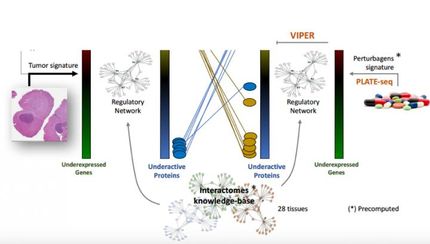Novartis completes submissions in US and Europe for Glivec as treatment for four rare types of cancer
Advertisement
Novartis announced that it has submitted applications in the United States and Europe for Glivec® (imatinib) known as Gleevec® (imatinib mesylate) Tablets in the U.S. as treatment for four rare types of cancer. These filings underscore how cancers of different origin and location can share common pathways that respond to the same targeted treatment.
"Thanks to the success of targeted therapies like Glivec, these filings speak to the fundamental shift that we are seeing in the approach to cancer treatment," said Diane Young, Vice President and global head of Clinical Development at Novartis Oncology. "One day, cancer may no longer be classified by site, or even by single genes or proteins, but instead by the way in which the cancer is expressed. This could potentially give rise to more targeted treatment options such as Glivec."
Glivec targets the activity of proteins called tyrosine kinases that play important roles within some cancer cells. Glivec has been shown to inhibit the function of the tyrosine kinase Bcr-Abl in Philadelphia-chromosome positive (Ph+) chronic myeloid leukemia (CML), and the receptor tyrosine kinase Kit in Kit (CD117)-positive gastrointestinal stromal tumors (GIST). Researchers have found that Glivec also inhibits other receptor tyrosine kinases, including platelet-derived growth factor (PDGFR), that have been shown to be activated in disease pathways that underlie a number of rare hematologic diseases as well as some solid tumors.
The diseases found to have Glivec-sensitive pathways include the solid tumor dermatofibrosarcoma protuberans (DFSP), a type of tumor that begins as a hard lump found in the skin of the chest, abdomen or leg. Three hematologic diseases were also found: certain forms of myeloproliferative disorders (MPD), diseases in which too many types of certain blood cells are made in the bone marrow; hypereosinophilic syndrome (HES), which is characterized by the persistent overproduction of the white blood cells eosinophils; and systemic mastocytosis (SM), which is marked by the presence of too many mast cells, a certain type of white blood cell. These diseases are rare but may be life threatening. For many of the patients who suffer from them, no approved treatment is available.

























































